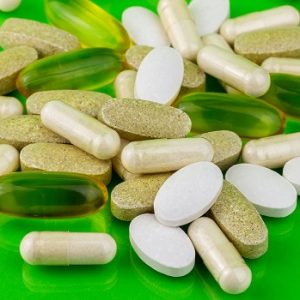
More evidence that low-calorie sweeteners are bad for your health
Studies show that artificial sweeteners can raise the risk of hypertension, metabolic syndrome, type 2 diabetes and heart disease, including stroke.

Natural Health News — Women and men in their childbearing years, as well as young people in general, are not getting the key micronutrients they need from food.
A secondary analysis of the UK National Diet and Nutrition Survey, published in Frontiers in Nutrition, highlights a tendency to report micronutrients intakes collectively for adults, with broad age ranges being used. This means that certain sub-population groups such as younger adults are often overlooked.
The current analysis, which looked at these subpopulations, noted that improvements in dietary quality are needed in young adulthood and mid-life. To achieve this, they note, supplementation strategies could help young adults be where they should be at these ages – in their “nutritional prime.”
The analysis found sizeable deficiencies in several important nutrients. For magnesium in both men and women, 19% of young people in their twenties having intakes below the Lowest Recommended Nutrient Intake (LRNI). There were also considerable gender gaps in dietary selenium intakes, with 50% females and 26% of males having total intakes beneath the LRNI.
Furthermore, a quarter of women had both iron and potassium intakes below the LRNI, while among UK males, vitamin A and zinc shortfalls were apparent.
» An analysis of UK dietary patterns has shown that younger adults, particularly those of child bearing age are not getting the nutrients they need so stay healthy
» While young adulthood is meant to be our nutritional prime key nutrients such as selenium, magnesium, iron, potassium, zinc, vitamin D and A were lacking
» These nutrients are especially important a for fertility and the researchers suggest that daily supplements may be an important way to address deficiencies which they say may be related to food fads and especially in young women unhealthy dieting.
The researchers say that an adequate micronutrient profile for women is not only important for fertility but also to prepare the body for the extensive physiological demands should pregnancy occur. Selenium, for example, has been highlighted as a crucial nutrient for women seeking to become pregnant.
By increasing their risk of preeclampsia, mothers with low selenium levels may also be at increased risk for heart disease, stroke and high blood pressure later in life. The summary calls for higher levels of supplementation of high selenium yeast to combat heart health threats.
Male fertility at risk too
Zinc, of course, is a known antioxidant with research showing that fertile males tend to have higher seminal zinc levels than their infertile men. Zinc also helps to support immunity and avert age-related diseases.
Zinc shortfalls are somewhat surprising to see, the researchers add, especially among males, given that meat and meat products are one of the main providers of zinc. It is possible that younger men in their twenties are eating less meat which could have contributed to lower zinc intakes in this age group, the researchers note. This is an important finding and worthy of consideration in the context of public health given current trends toward plant-based diets, they explain.
In terms of the low vitamin A intake found in males, the researchers found that young men’s mean intakes of fruit and vegetables were slightly lower at 3.9 portions daily compared with 4.1 portions daily among women aged 19 to 64 years. It has also been found that fruit and vegetable variety tends to be lower in men, especially in instances where education and social class is lower.
Why are levels so low?
Adequate nutrition at this stage of life can also help to future-proof health against debilitating and chronic diseases that can occur in later life.
The researchers suggested that when it comes to women’s nutritional shortfalls, societal pressures around body image could be a factor. They cite a recent survey of 1,035 social media tweets typically used by young adults that found that 67% related to body image, eating disorders, fitness, food or dieting. This, in turn, could have wider ramifications impacting on dietary habits and micronutrient profiles of young women.
Emerging food trends and the avoidance of food groups could also be impacting on micronutrient intakes. For example, the consumption of eggs, milk, and dairy correlates strongly against female nutritional iodine status while veganism has also been found to impact on vitamin D, calcium and vitamin B12, iodine and selenium intakes. They further add that UK females having diets lower in red meat (less than 40 g daily) have reduced micronutrient intakes, especially zinc and vitamin D.
“It is imperative to continue raising awareness about the importance of healthy and balanced diets and adequate micronutrient intakes. The implications of ‘cutting back or cutting out’ certain food groups also need to be communicated, especially to younger generations who are strongly influenced by social media which is not subject to peer review or monitoring systems,” says author Dr. Emma Derbyshire, Public Health Nutritionist and an advisor to the Health & Food Supplements Information Service (HSIS).
A daily insurance policy
The current research found that females and young adults are at particular risk of micronutrient shortfalls. In an environment, where the public are being encouraged to reduce their energy intakes, it is important to ensure that younger people get the nutrient they need sand that multivitamin and mineral supplements could help.
Supplement, of course, are no substitute for a healthy diet, but as the nutrient content of our food declines and food fads become more prevalent, they may be an important insurance policy for health. For information on choosing the best supplements see our article What to look for in supplements.

Please subscribe me to your newsletter mailing list. I have read the
privacy statement